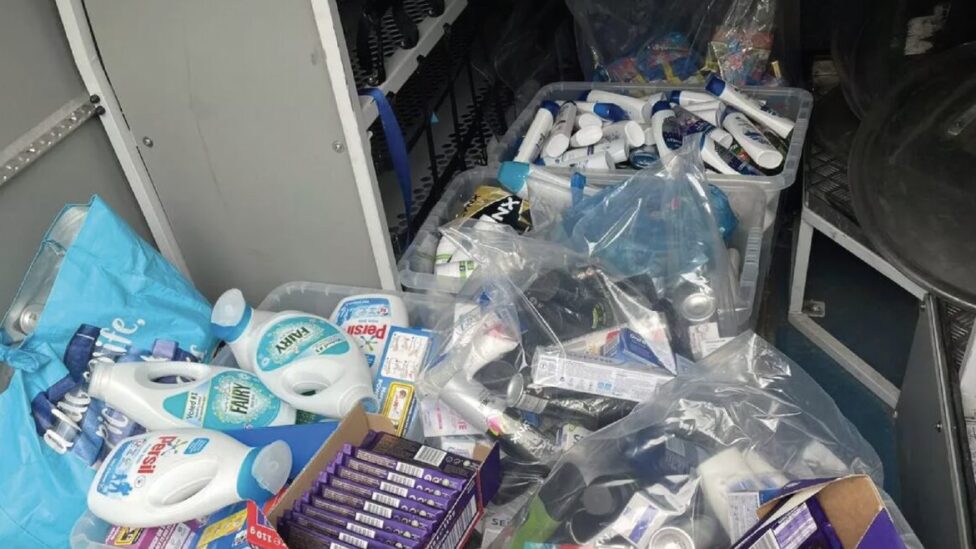“Unscrupulous” shops are fuelling a surge of shoplifting by buying stolen goods, senior retail figures have warned.
The claim followed a BBC interview on 29 August with former Leeds-based shoplifter ‘Ross’, who admitted to stealing “tens of thousands of pounds” of stock, often based on orders from other local shopkeepers.
Ross said: “If I had a bag full of stuff, I would know which shop to go to to sell it on. They’d take me into the back room, I’d lay it out on the floor and we would discuss a price.”
In the BBC’s interview with Ross, the shoplifter said he had 15 shoplifting convictions, but had never been imprisoned. A lack of consequences for shoplifting is also fuelling the increase in the crime, said Fed members Fiona and Vince Malone, speaking on BBC’s Newsnight following the interview.
Fiona said: “It’s happening far too often, and it’s not fair. We run the business for the community, and are also a post office. If we were to close, the town would have nowhere to do its banking.”
Speaking at a Home Affairs Committee debate in the House of Lords on 3 September, former police officer and Safer Business Network operations director Adam Ratcliffe agreed stealing to order was leading to more brazen theft.
He added: “Thieves don’t even run out of store any more – they are walking out saying, ‘Well, what are you going to do?’”
Commenting on the House of Lords debate, ACS chief executive James Lowman said: “People buying from car parks, pubs or other shops is an under-discussed issue.”
After the BBC interview, British Retail Consortium chief executive Helen Dickinson said there was “an increasing trend of unscrupulous businesses taking on local products that have been stolen to order”.
OPINION: It’s time to lock up anyone stealing from shops, Mo Razzaq, national president, the Fed
When asked by lords how adequately law enforcement was dealing with those businesses, Ratcliffe said police lacked resources to tackle the offenders, preventing them from “looking at what’s happening down the line”.
Former Fed president Narinder Randhawa had called for more emphasis to be placed on cracking down on those buying stolen goods.
However, a number of trading standards departments told RN they had ceased “routine visits” to stores, making it difficult to detect those selling stolen goods.
There are few examples of shops being caught. In May, a shop in Coventry was raided, with officers discovering £5,000-worth of suspected stolen goods seized from the premises. Police did not announce any arrests or charges.
In a licence hearing in 2017 attended by RN, a shop owner admitted to selling stolen wine bottles and lying to police officers about it. His alcohol licence was suspended for two weeks with no further action taken.
In a similar incident in Peterborough this year, in which a retailer was found to have a weapon behind the counter, the store’s alcohol licence was revoked.
Also speaking at the House of Lords debate this week, former HMRC director and Co-op campaigns and public affairs director Paul Gerrard said organised groups and stealing to order were driving an 18-month crime surge in the chain’s stores.
He added that these groups often turned to violence when challenged. He continued: “There are always people who steal to make ends meet. What is driving the increase is people stealing to order.
“If one of my colleagues gets in the way, there will be a threat. There have been knives and syringes.
“We’ve had colleagues lose an eye, and miscarry. We’ve had to move colleagues from their homes because they’ve been followed and threatened.”
Lowman described these crimes as being driven by “repeat offenders, often with addiction problems and often well known to the person running the store”.
He added: “These are two-to-three-person crime waves in housing estates and villages. The theft has become more brazen, with people not sneaking in, but clearing whole shelves.
“These people often live nearby, and proximity makes it that much more real because ‘I know where you live’ is not an idle threat to staff.”
Read more news on The Fed



Comments
This article doesn't have any comments yet, be the first!